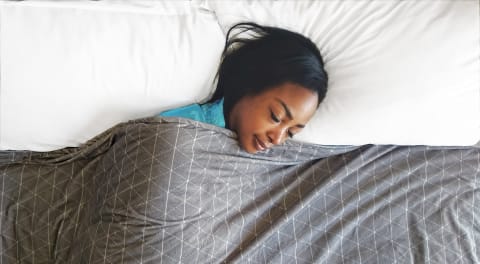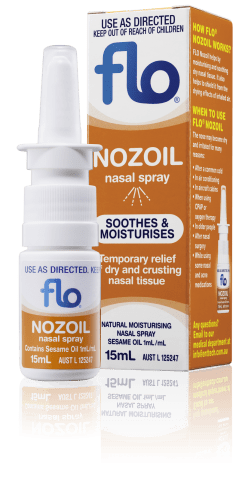Mouthpiece for Apnea
Mouthpieces for Sleep Apnea: What You Need to Know
If you or a loved one snores loudly or wakes frequently feeling unrested, you may already be exploring treatments for sleep apnea. While CPAP therapy is the gold standard for managing Obstructive Sleep Apnea (OSA), some people benefit from additional or alternative devices — like mouthpieces.
Mouthpieces (also known as oral appliances or mandibular advancement devices) can play a helpful role in certain cases, particularly for those who snore, have mild OSA, or are looking for a supportive option alongside nasal CPAP therapy. At Sove CPAP Clinic, we aim to provide patients with the clearest path to better sleep, offering a range of solutions including non-invasive mouthpieces like Ripsnore.
On this page, we’ll explain how mouthpieces work, when they’re most effective, and how they fit into the broader world of sleep apnea treatment. Whether you’re considering alternatives to CPAP or looking to optimise your current therapy, this guide will help you make informed, patient-first decisions.
A Mouthpiece May Help Reduce Snoring, but It Is Not a Substitute for CPAP Therapy
Snoring is often caused by a narrowing of the airway during sleep, which causes soft tissues in the throat to vibrate. While snoring can be harmless in some cases, it can also be a sign of something more serious — like obstructive sleep apnea, where the airway becomes temporarily blocked, disrupting breathing and sleep quality.
Mouthpieces are designed to reduce this narrowing by gently holding the lower jaw (mandible) forward, which helps to keep the airway open. This mechanical repositioning is particularly useful for those with primary snoring or mild sleep apnea.
However, it’s important to understand that mouthpieces are not a replacement for CPAP therapy in cases of moderate to severe OSA. CPAP (Continuous Positive Airway Pressure) works by delivering a steady stream of air through a mask, keeping the airway fully open throughout the night. It is the most clinically validated treatment for moderate to severe sleep apnea.
Mouthpieces can be a helpful option for:
- People with primary snoring but no apnea diagnosis.
- Those with mild OSA looking for a simpler or travel-friendly device.
- Patients who are trialing CPAP but find it difficult to tolerate at first.
For people who are hesitant about using a CPAP machine, starting with a mouthpiece might feel less intimidating. It’s also a discreet option that’s easy to travel with, doesn’t require power, and has no noise — a factor that appeals to bed partners too.
Mouthpieces Can Be Used Alongside CPAP Therapy
For some patients, especially those using nasal masks, a mouthpiece can actually enhance the effectiveness of CPAP therapy. This combination is particularly useful if you:
- Experience mouth leak while using a nasal mask.
- Find it hard to achieve a proper seal due to jaw movement during the night.
- Have residual snoring despite using CPAP.
By helping stabilise the lower jaw and prevent the mouth from opening during sleep, a mouthpiece can complement nasal CPAP use and improve overall comfort. It may also reduce the need for chin straps or full-face masks in some cases.
Combination therapy can make CPAP more tolerable for those who struggle with certain side effects, like dry mouth or leaking masks. It can also help patients stay compliant with their therapy by reducing discomfort and improving outcomes.
This approach is most commonly used with nasal pillow or nasal cradle masks, where open-mouth breathing can disrupt therapy or lead to dry mouth. A well-fitted mouthpiece helps mitigate these issues by supporting natural nasal breathing and jaw stability.
Ripsnore Is Non-Invasive
Among the available options, Ripsnore stands out as a non-invasive, easy-to-use mouthpiece for managing snoring and mild sleep apnea. It is designed to gently advance the lower jaw to improve airflow, without requiring a dental visit or complex fitting process.
Key Features of Ripsnore:
- Boil-and-bite custom fit: You can mould the device at home to suit your bite.
- Soft, medical-grade materials: Comfortable to wear and free from latex or BPA.
- Portable and simple: Ideal for travel or occasional use.
While Ripsnore is not suitable for treating moderate or severe OSA on its own, it offers a helpful stepping stone for those just beginning their sleep therapy journey. It may also be beneficial for patients looking to reduce snoring or support nasal CPAP use.
Compared to more complex mandibular advancement devices (MADs) that require dental fitting, Ripsnore offers an affordable and accessible option for those wanting to test the waters. It’s also easier to replace if lost or damaged.
CPAP Machines and Accessories
While mouthpieces can play a valuable role in sleep therapy, especially in mild cases or as an adjunct to nasal CPAP, the majority of patients with moderate to severe OSA will benefit most from starting — and staying — on CPAP therapy.
At Sove CPAP Clinic, we offer a wide selection of CPAP machines, CPAP masks, and CPAP accessories to suit every lifestyle. From compact travel models like the ResMed AirMini to quiet, full-featured devices like the ResMed AirSense 11, we ensure your setup supports comfort, compliance, and better sleep.
We also provide:
- Professional mask fittings to help you find the perfect seal.
- Machine trials and rentals to make therapy more accessible.
- Ongoing follow-up and pressure adjustments to keep your settings optimal.
- Support for combination therapy, including when to consider adding a mouthpiece.
Whether you’re just starting out or looking to refine your setup, our clinicians are here to help. With both in-person and telehealth options, getting the support you need has never been easier.
ALWAYS FOLLOW THE DIRECTIONS FOR USE. CPAP is used for Obstructive Sleep Apnoea treatment. When considering whether a sleep study or CPAP is right for you, speak to your doctor. Medicare criteria and T&Cs apply.
Frequently Asked Questions
How do I know if a mouthpiece is the right option for me?
If you snore but haven’t been diagnosed with sleep apnea, or if you have mild OSA and are looking for a more manageable alternative to CPAP, a mouthpiece may be a suitable starting point. It’s particularly helpful for those who find CPAP uncomfortable, travel often, or want a backup option.
However, the most important first step is a sleep study. Many people don’t realise their snoring is linked to undiagnosed sleep apnoea, which requires medical treatment. At Sove CPAP Clinic, we’ll help you understand your symptoms, organise a sleep study, and recommend the most effective therapy — whether it’s CPAP, a mouthpiece, or both.
Can a mouthpiece like Ripsnore treat Obstructive Sleep Apnea?
Ripsnore can assist in reducing snoring and may offer support for mild OSA, but it’s not designed to treat moderate or severe cases. These require more comprehensive therapy, typically in the form of CPAP.
That said, for people who are newly diagnosed, travelling, or trying to ease into treatment, Ripsnore can be a helpful transitional tool. It’s also non-invasive, affordable, and easy to use — making it a popular choice for those not yet ready for a full CPAP setup. Sove CPAP Clinic can help assess your needs and determine whether a device like Ripsnore™ can safely support your sleep health.
Can a mouthpiece improve CPAP mask tolerance for new users?
Absolutely. For patients who use nasal or nasal pillow masks, a mouthpiece can prevent the jaw from dropping open during the night — one of the common causes of CPAP leaks, dry mouth, and general discomfort.
By helping to keep the mouth closed, a mouthpiece encourages nasal breathing and stabilises the fit of the mask. For new users adjusting to CPAP, this can make a significant difference in comfort and adherence. Our team can work with you to fine-tune your therapy and determine whether adding a mouthpiece will improve your experience.
Are mouthpieces adjustable or one-size-fits-all?
Most over-the-counter mouthpieces, including Ripsnore, are boil-and-bite designs. This means they can be moulded at home to fit your mouth, offering a semi-custom fit that balances comfort and affordability. These types of devices work well for many people, especially when guided by professional advice.
However, more advanced options — such as dual-laminated mandibular advancement devices — are fully custom-made by dental professionals. These may be required for complex cases or for individuals with unique oral anatomy. Sove CPAP Clinic can help you weigh the pros and cons of each type, based on your needs and preferences.
Are mouthpieces safe to use without a prescription?
Devices like Ripsnore are available without a prescription, which makes them convenient for people who want to try something right away. However, using a mouthpiece without a proper diagnosis can be risky, especially if you have undetected OSA.
We always recommend starting with a consultation and sleep assessment to ensure your chosen therapy is safe and effective. Our clinicians can also help you monitor your progress and adjust your approach over time.
What if I have jaw pain, dental issues or bruxism?
If you experience jaw discomfort, have dental complications, or grind your teeth at night (bruxism), it’s important to speak with a clinician before using a mouthpiece. These conditions can interfere with fit, cause discomfort, or worsen symptoms if not properly addressed.
In some cases, a specially designed or dentist-fitted device may be needed. In others, CPAP therapy may offer a more effective and gentler approach. At Sove CPAP Clinic, we take the time to understand your oral health history and work collaboratively with dental professionals when needed to provide the safest, most effective care.








